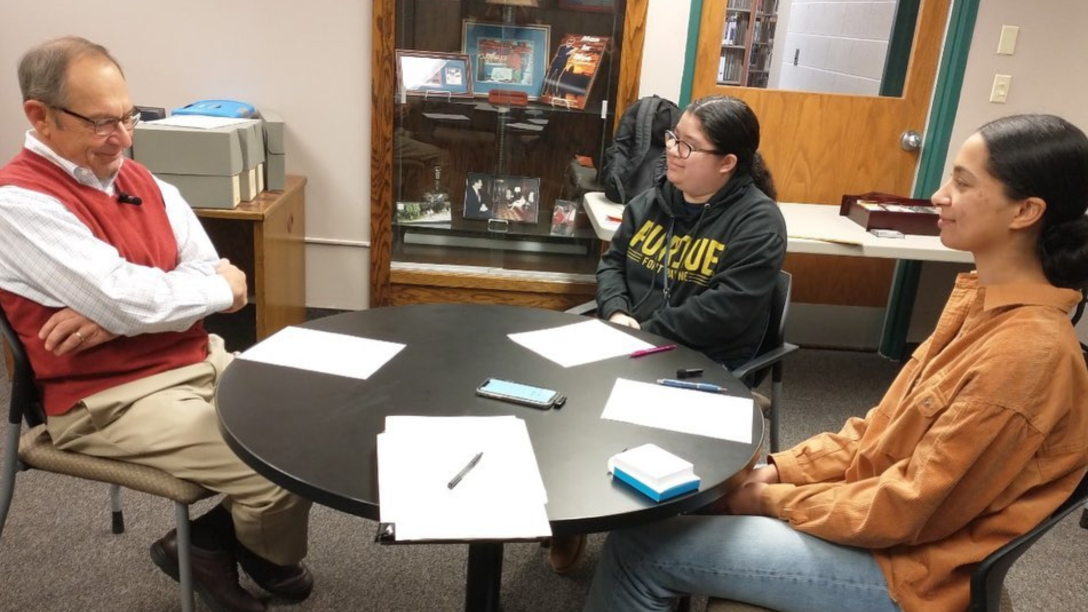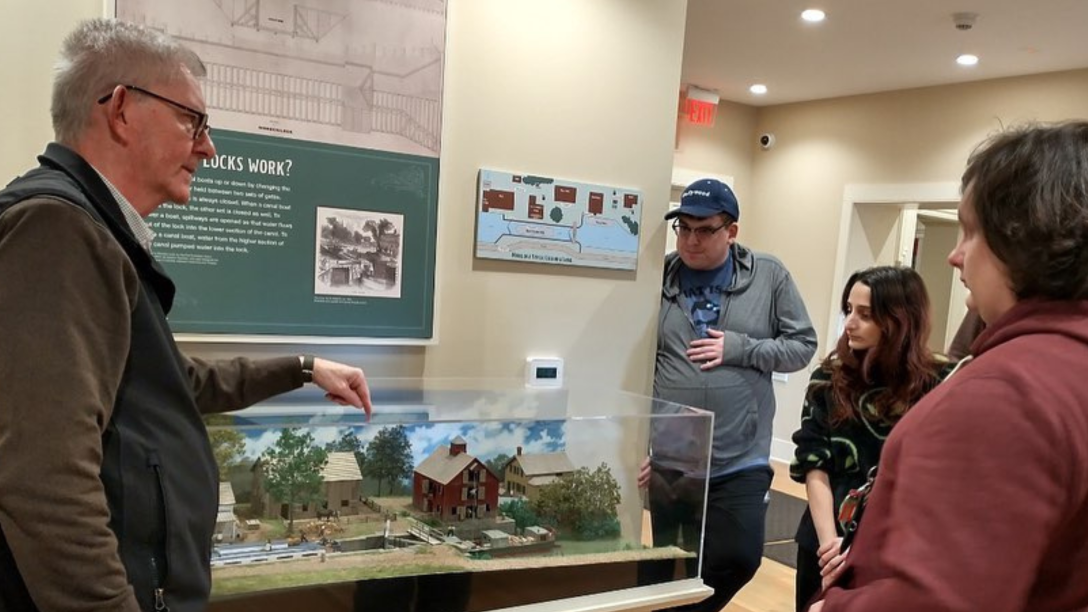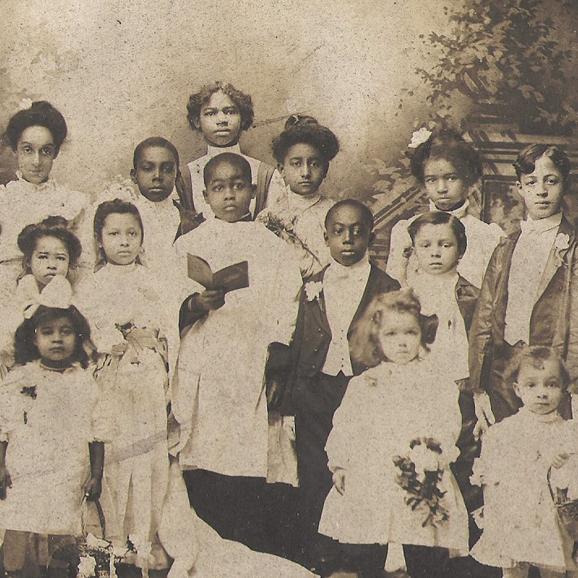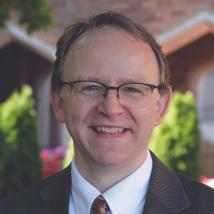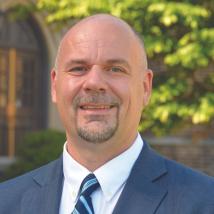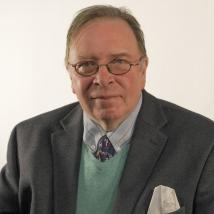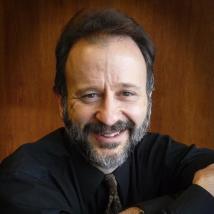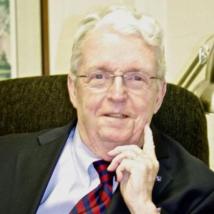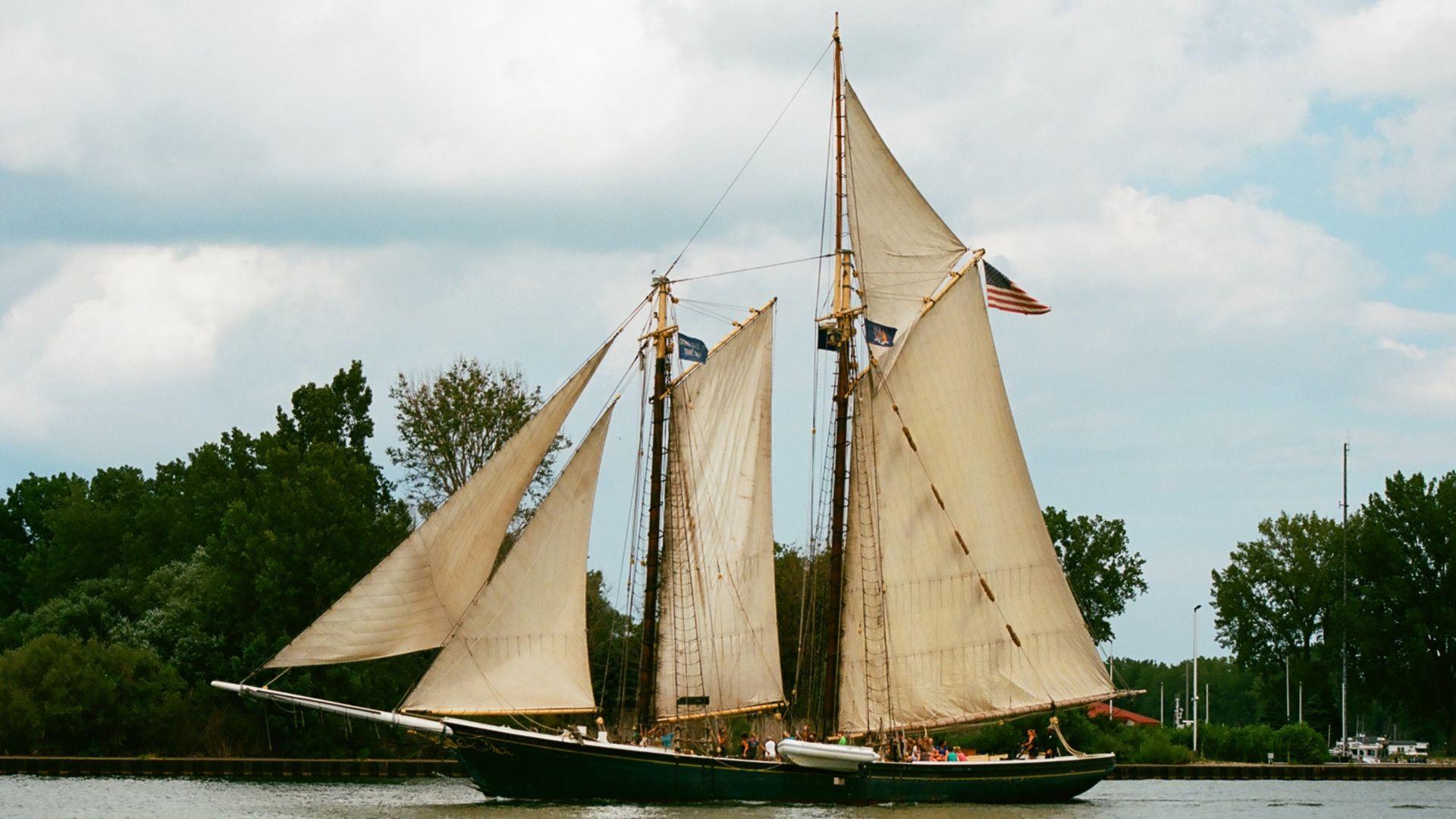
History
If you're fascinated by the past, Mercyhurst’s Thomas B. Hagen Department of History can help prepare you for a successful and rewarding future with studies in traditional history, public history and museum studies, or preparing to teach history at the secondary level. A wide-ranging curriculum, coupled with an outstanding faculty, equips students with skills sought by employers in virtually any field: to research, analyze, and evaluate information; and to produce sound, convincing arguments orally and in writing. Our History department is committed to promoting a constant search for answers and a holistic approach to learning. Students research movements and events from the past as they analyze how different social, political, and cultural trends affect our society today.
Our graduates pursue a wide range of career paths including teaching, research, journalism, law, public service, museums, and historic sites. Whatever career you pursue following graduation, a Mercyhurst History degree will prepare you for today’s rapidly changing job market. Students without a concrete career goal in mind are guided to pursue their passions through interactions with dedicated faculty, internships, service opportunities and the senior capstone experience.
Fast Facts
- Our History graduates who pursue Secondary Education certifications enjoy an exceedingly high (over 90%) placement rate. Recent graduates have secured high school teaching positions with schools in Pennsylvania, Ohio, Maryland, and Virginia.
- We help facilitate student internships all over the United States and abroad. Our students have interned at such prestigious sites as the Gettysburg National Battlefield, Historic Mount Vernon Gardens and Estate, the U.S. Holocaust Memorial Museum, and the Petrie Museum of Egyptology in London.
- History will take you places! Students and faculty explore historical sites at home and abroad — from the industrial heritage of Pittsburgh to Rome’s ancient ruins, and countless places in between.
- Our students become adept at critical thinking, research analysis, communication, and problem solving. As a result, our graduates find themselves prepared for fulfilling employment in a variety of diverse fields.
- Students frequently collaborate on significant community and regional history initiatives, such as "You Are Here - We Are Here," a multi-faceted project to document and celebrate the multicultural history of Erie’s east side.
Learning Outcomes
- Critical Thinking. Demonstrate the ability to consider critically and determine a well-informed position on a historical problem.
- Historical and Cultural Knowledge and Understanding. Demonstrate a broad understanding of historiography, major periods of United States, and world history.
- Information Literacy. Demonstrate proficiency with the methods of historical research, analysis, and proper documentation of primary and secondary sources of information in advancing a historical argument.
- Public History Methods. Students will demonstrate a mature competency of select sub-disciplines of public history, museum studies, and digital history.
- HIS 235: Intro to Public History/Museum Studies
- HIS 236: Intro to Historic Preservation
- HIS 240: Museum Studies II
- HIS 301: Historical Methods & Historiography
- HIS 305: American Material Culture/Built Landscape
- HIS 475: Public History Internship
- HIS 490 senior project in Public History
- HIS 238: Intro to Archives and Records Management
- HIS 295: Digital History: Storytelling
- HIS 296: Digital History: 1.0-3.0
- HIS 394: Special Topics in Public History
- ANTH 205: Historical Archaeology
- ANTH 227: Ethnographic Field Methods
- ART 128: Computer Design for Non-Designers OR ART 220 Introduction to Website Design OR ART 1390 Introduction to Gallery Management
- COMM 402: Documentary Film Production
- OL 630: Grant Writing
- GEOL 225: Science on Display/Lab
The Public History and Museum Studies concentration prepares students for careers in museums, historic and cultural sites, archives, and applied history in a range of fields. Through internships, a senior Public History project, class projects, and travel experiences, our students get to see — and to experience — what professional public historians do. They have produced museum exhibits, cataloged Civil War artifacts, given tours, produced driving and walking tours of historic sites, and helped to produce exhibition catalogs, just to name just a few. Students must complete the Public History curriculum (8 courses, or 24 credit hours), as well as an additional 18 credit hours in History courses.
Required:
One (1) additional course among the following:
3 courses (9 credit hours) in American History
3 courses (9 credit hours) in Western and World Historical Perspectives
- HIS 235: Intro to Public History/Museum Studies
- HIS 240: Museum Studies II
- HIS 305: American Material Culture/Built Landscape
- ANTH 205: Historical Archaeology
- ANTH 218: Public Anthropology
- ANTH 227: Ethnographic Field Methods
- ANTH 233: Collections and Curation Management
- HIS 236: Introduction to Historic Preservation
- HIS 238: Introduction to Archives
- HIS 295: Digital History: Storytelling
- HIS 296: Digital History: 101 to 3.0
- HIS 394: Special Topics in Public History
- HIS 475: Public History Internship
- HIS 485: Senior Project in Public History
To complete a History Minor, students must complete a total of 6 History courses (18 credit hours), no more than 2 of which may be at the 100 level.
To complete a Public History Minor, students must complete a total of 18 credit hours, dispersed as follows:
Required Courses
Choose two additional courses from the following:
Select one additional course from the following:
- American History (Minimum 3 courses, or 9 credit hours)
- Western and World Historical Perspectives (Minimum 3 courses, or 9 credit hours)
- Methods (Minimum 1 course, or 3 credit hours)
- Capstone (Minimum 1 course, or 3 credit hours)
- Additional History Electives (Minimum 6 courses, or 18 credit hours)
- WL 101: Culturally/Linguistically Diverse Learners (taken in junior or senior year)
- EDUC 210: Comparative Issues in Education (taken in senior year)
- PSYC 101: Introduction to Psychology
- SOC 100: Introduction to Sociology
- ECON 105: Macroeconomics (see REACH)
- ANTH 112: World Cultures (see REACH)
- POLI 100: American Government (see REACH)
- Two (2) MATH courses above College Algebra level
- And either POLI 236: World Politics OR POLI 303: Geopolitics
Students pursuing careers in teaching choose our very successful 4+1 track. In addition to their liberal arts core curriculum, students take extensive course work in history and social studies content areas like political science, sociology, geography and anthropology, as well as two education classes. Students in the 4+1 program complete an enhanced History degree, and then receive their Master's in Education with Social Studies Certification through a fifth year of study at a reduced adult education tuition rate. Students on this track must complete the History Major curriculum of 42 credit hours of History courses, dispersed as follows:
As well as an Education Content Area (which requires the Education Graduate Coordinator to approve registration):
Students are encouraged to take the following courses to prepare them for content training in social studies education:
- Andy Gebauer ’19, Fairview School District
- Benjamin Barbour ’17, Fairview School District
- Paul Carney ’15, Social Studies Teacher, Head Football Coach, Corry Area High School
- Charles Ferrugia ’14, Iroquois High School (recent Golden Apple Award winner)
- Ryan Maloney ‘13, Teacher, Kennedy Catholic High School, Hermitage, Pennsylvania
- Elizabeth Eidnier ’12, Teacher, Teach For America, Cleveland, Ohio
- Meghan Keener ’12, Teacher, Fairview High School, Fairview Park, Ohio
- Keven Gregg Teacher ’12, Charlotte-Mecklenburg School District, Charlotte, North Carolina
- Anthony Demarco ’11, Teacher, Indian River Charter High School, Vero Beach, Florida
- John Baranowski ’10, Teacher, Fairfax County School District, Fairfax, Virginia
- Nick Johnson ’09, Teacher, St. Mary’s County School District, St. Mary’s, Maryland
- Gary Magorien ’06, Assistant Principal, Erie High School, Erie, Pennsylvania
- Kimberly (Meerhoff) Damcott ’04, Principal, Walnut Creek Middle School, Millcreek, Pennsylvania
- Adam Macrino ’21, Guest Services Coordinator, Erie County Historical Society, Hagen History Center, Erie, Pennsylvania
- Anna Foll ’19, Guest Services Coordinator, Erie County Historical Society, Hagen History Center, Erie, Pennsylvania
- Kyra McCormick ’19, Visitor and Volunteer Coordinator, North Carolina Maritime Museum
- Rachel Masters ’15, Paleobiology Collections, Smithsonian National Museum of Natural History
- KayAnn Warner ’15, Processing Archivist, Erie County Historical Society, Hagen History Center, Erie, Pennsylvania
- Emma Simmons ’13, Intern, Pennsylvania Trolley Museum, Pittsburgh, Pennsylvania
- Amanda Stafford ’13, Interpretive Staff, Museum of Innovation and Science, Schenectady, New York
- Carolyn (Carlins) Keller ’12 Founder and CEO, Curio 412, Pittsburgh, Pennsylvania
- Alyssa Magnone ’11, Collections Manager, Aiken County Historical Museum, Aiken, South Carolina
- Jennifer Wheaton ’11, Senior Environmental Planner, ICF, Littleton, Colorado
- Beth McMullen ’09, Development Associate Director, Heinz History Center
- Bethany Canfield ’07, Historian, West Virginia Historic Preservation Office
- Kaitlin Ammon ’08, Director, Sam Bell Maxey Historic Site, Paris, Texas
- Annette Kluding ’06, Director, Maritime Museum of Sandusky, Ohio
- Rachel (Stucke) Pearce ’18, Historic Preservation Specialist, Sandvick Architects, Cleveland, Ohio
- Kayann Warner ’14, Preservation Assistant, Wise Preservation Planning LLC, Erie, Pennsylvania
- Steve Bukowski ’12, Director, Interpretive Services, Thinking Outside the Square, Buffalo, New York
- Nick Stolar ’13, Officer, Pennsylvania State Police
- Elizabeth Kostrencic ’11, Visitor Services, United States Capitol Building, Washington, D.C.
- Erin Hramada ’95, Historian, United States House of Representatives, Washington, D.C.
- Corrie Thearle '06, Attorney, Juvenile Division of Alleghany County Office of Conflict Counsel, Pittsburgh, Pennsylvania
- Brian Cagle '05, Attorney, Pepicelli, Youngs & Youngs, Meadville, Pennsylvania
- Patrick Ebner 05', Attorney at Law, Steuer, Escovar, Berk & Brown, Cleveland, Ohio
- John Hermann, Jr. ’15, Organizer, AmeriCorps VISTA, Syracuse, New York
- Kylie McCormick ’13, Director of Youth and Family Ministries, First Presbyterian Church, Pasadena, California.
- Zac Ufnar ’07, National Recruitment Coordinator, Lasallian Volunteers, Washington, D.C.
- Adrienne Houseman, Direct Support Specialist, Lakeshore Community Services, Erie, Pennsylvania
- Holly Krieser ’12, Regulatory Specialist, Reckitt Benckiser Pharmaceuticals, Richmond, Virginia
- Melora Whalen ’12, Client Service Representative, Foundation Software, Cleveland, Ohio
- Tori Pepicello ’11, Traffic Manager, Culmulus Broadcast Media, Erie, Pennsylvania
- Austin Ewing ’10, Product Owner, MxToolBox, Web Data Analysis, Austin, Texas
- Megan Rulli ’08, Farm Manager, Piney Mountain Orchard, Gardners, Pennsylvania
- Ashley Harper ’11, Graduate Assistant Coach, Stevenson University, Women’s Hockey Team
- Thurman Schaetzle ’11, Assistant Coach, Gannon University, Men's Basketball Team
- Courtney Drennen ’09, Assistant Coach, Pennsylvania State University, Women’s Ice Hockey Team
- Allan Downey ’07, Ph.D., Academic Associate in Indigenous Studies at the McGill University Institute for the Study of Canada (MISC), Montreal, Canada
- Eric Buetikofer ’07, Director of Military and Veteran Affairs, University of Toledo
- Historical Interpretive Plan, Mercyhurst University (Kyra McCormick ‘19)
- Marx Toy Exhibit, Hagen History Center (Rebecca Kuss ‘17)
- Historic Route 6 Tours (Jackie Duncan ‘20)
- Documentary Film, Pennsylvania Soldiers and Sailors Home (Sydney Van Leeuwen ‘18)
- Ridgway Cemetery Preservation and Mapping (Juliet Hilburn ‘18)
- Forest County Industrial and Environmental Heritage — Brochure and Wayside Markers (Melora Whalen, 2012)
- Our most celebrated project in recent years: African Americans in Erie County: A Trail of Shared Heritage, to which nine students have contributed over the past few years. Our students researched and produced the Trail’s Virtual Tour for the web site (also produced by a Mercyhurst student).
- HIS 101: U.S. History to 1865
- HIS 102: U.S. History Since 1865
- HIS 103: America since 1945
- HIS 211: American Colonial History
- HIS 212: Revolutionary America
- HIS 213: Early Republican America
- HIS 214: Pennsylvania History
- HIS 215: American Indian History
- HIS 216: Civil War and Reconstruction
- HIS 217: Making Modern America, 1877-1920
- HIS 219: World War II
- HIS 221: U.S. Environmental History (cross listed with POLI 221)
- HIS 224: Vietnam War (cross listed with POLI 224)
- HIS 225: Exploring American Culture, 1920-Present
- HIS 226/326: The Turbulent Sixties
- HIS 230: History of the American West
- HIS 232: African Americans in Film
- HIS 233: History of Sports in America
- HIS 235: Introduction to Public History and Museum Studies
- HIS 236: Intro to Historic Preservation
- HIS 238: Intro to Archives and Records Management
- HIS 240: Museum Studies II
- HIS 305: American Material Culture/Built Landscape
- HIS 325: Fear and Film in the Nuclear Age
- HIS 327: The Civil Rights Movement (cross listed with POLI 327)
- HIS 391: Special Topics in American History
- HIS 145: European History to the Renaissance
- HIS 146: European History Since the Renaissance
- HIS 170: World History I
- HIS 171: World History II
- HIS 219: World War II
- HIS 245: Ancient Greece
- HIS 250: 20th Century Europe through Film
- HIS 260: History of Ireland
- HIS 261: British Empire
- HIS 262: Victorian Britain
- HIS 272: Soviet Russia
- HIS 270: 20th Century World History
- HIS 274: Modern Middle East
- HIS 275: Decolonization
- HIS 283: Sex in Modern History
- HIS 293: Special Topics in World History
- HIS 371: Russian Film
- HIS 384: History and Memory of the Holocaust
- HIS 385: Sex, War, and Violence in 20th Century Europe
- HIS 392: Special Topics in European History
- HIS 393: Special Topics in World History
- HIS 295: Digital History: Storytelling
- HIS 296: Digital History: 101 to 3.0
- HIS 301: Historical Methods and Historiography
- HIS 480: Senior Seminar
- HIS 485: Senior Project in Public History
- HIS 490: Senior Thesis
Mercyhurst History students have completed internships at some of the most esteemed historical sites in the nation, including:
| Antietam National Battlefield | Erie Maritime Museum/U.S. Brig Niagara | Fort Necessity National Battlefield |
| Fort Stanwix National Monument | George Eastman House International Museum | Gettysburg National Battlefield and Military Park |
| Historic Mount Vernon Gardens and Estate | Pennsylvania Department of Transportation, Bureau of Design | Petrie Museum of Egyptology (London) |
| Plimoth Plantation (MA) | Rivers of Steel National Heritage Area | Smithsonian Institution |
| National Museum of American History | Center for Folklife and Cultural Heritage | United States Holocaust Memorial and Museum |
Mercyhurst History students have gone on to attends some of the finest graduate schools in the nation, including:
| Yale University | University College of London | University of North Carolina, Greensboro |
| University of West Florida | University of Pittsburgh | George Washington University |
| Carnegie Mellon University | State University of New York, Albany | Cleveland State University Law School |
| Widener University School of Law | University of the Arts | West Virginia University |
| Duquesne University | University of New Mexico |
History graduates are pursuing a variety of exciting careers!
Education
Public History and Museums
Historic Preservation
Government
Legal
Nonprofit
Business
Athletics
Higher Education
The 'Hurstorian Journal
The ‘Hurstorian began in Fall 2020 when a student chief editor and a volunteer editorial team, assisted by the History Department faculty, developed a professional publication to highlight the work of students within the department. This journal is a collection of historical articles written and edited by current students for their work to be shared beyond the classroom. Students dedicate time and effort to extensive research and writing, and that dedication is mirrored in the work of the chief editor and volunteer editorial board, composed entirely of history students. Once submissions are selected, writers and editors work together to prepare the articles for publication.
Public History Senior Projects
Mercyhurst Public History students are challenged in their senior year to apply what they have learned in their coursework to a public history project of their choosing and design. More than anything else, the senior project distinguished our students from public history graduates around the country, positioning them for success in the fields of museums, historic sites, archives, and historic preservation. Projects our students over the past few years have produced include:
American History
Western and World Philosophical Perspectives
Methods
Capstone
Benjamin Scharff, Ph.D.
Chair, Thomas B. Hagen Department of History
Office: Preston 118
Meet the Faculty

Bryan Colvin
University Archivist; Thomas J. & Michelle Ridge Archivist; Lecturer; Co-Director of iMU First Year Experience

